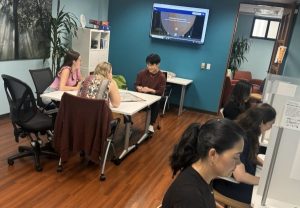The G.I. Bill, also known as the Servicemen’s Readjustment Act of 1944, has long been a cornerstone of support for veterans returning from military service. This landmark legislation provides educational benefits, such as tuition assistance and housing allowances, to eligible veterans who have served in the U.S. armed forces. However, recent studies have shown that the type of institution a veteran attends can greatly influence their educational and career outcomes.
A study conducted by researchers at the Department of Veterans Affairs found that veterans who attend for-profit colleges are less likely to graduate and more likely to default on their student loans compared to their counterparts at public or private non-profit institutions. The study also found that veterans who attend for-profit colleges are more likely to end up in low-paying jobs and experience higher rates of unemployment.
These findings highlight the importance of choosing the right institution when using G.I. Bill benefits. Public and private non-profit colleges and universities tend to have higher graduation rates and better job placement outcomes for veterans. These institutions often offer a wider range of academic programs, student support services, and career resources that can help veterans succeed in their educational and professional pursuits.
In addition to institution type, the study also found that the geographical location of the institution can impact veteran outcomes. Veterans who attend colleges in areas with higher costs of living may struggle with housing affordability and financial stability, leading to higher levels of stress and lower academic performance. On the other hand, veterans who attend institutions in more affordable and supportive communities may have a better overall experience and higher rates of success.
Overall, the latest G.I. Bill studies suggest that veterans should carefully consider the type and location of the institutions they choose to attend in order to maximize the benefits of their education benefits. By selecting a public or private non-profit college or university with strong academic programs and support services, veterans can increase their chances of graduating on time, finding gainful employment, and building a successful career after military service.
As policymakers and education officials work to improve outcomes for veterans using the G.I. Bill, it is crucial to consider the unique needs and challenges faced by this population. By investing in high-quality educational opportunities and support services, we can ensure that our veterans receive the education and training they need to thrive in civilian life and contribute to our communities and economy.


